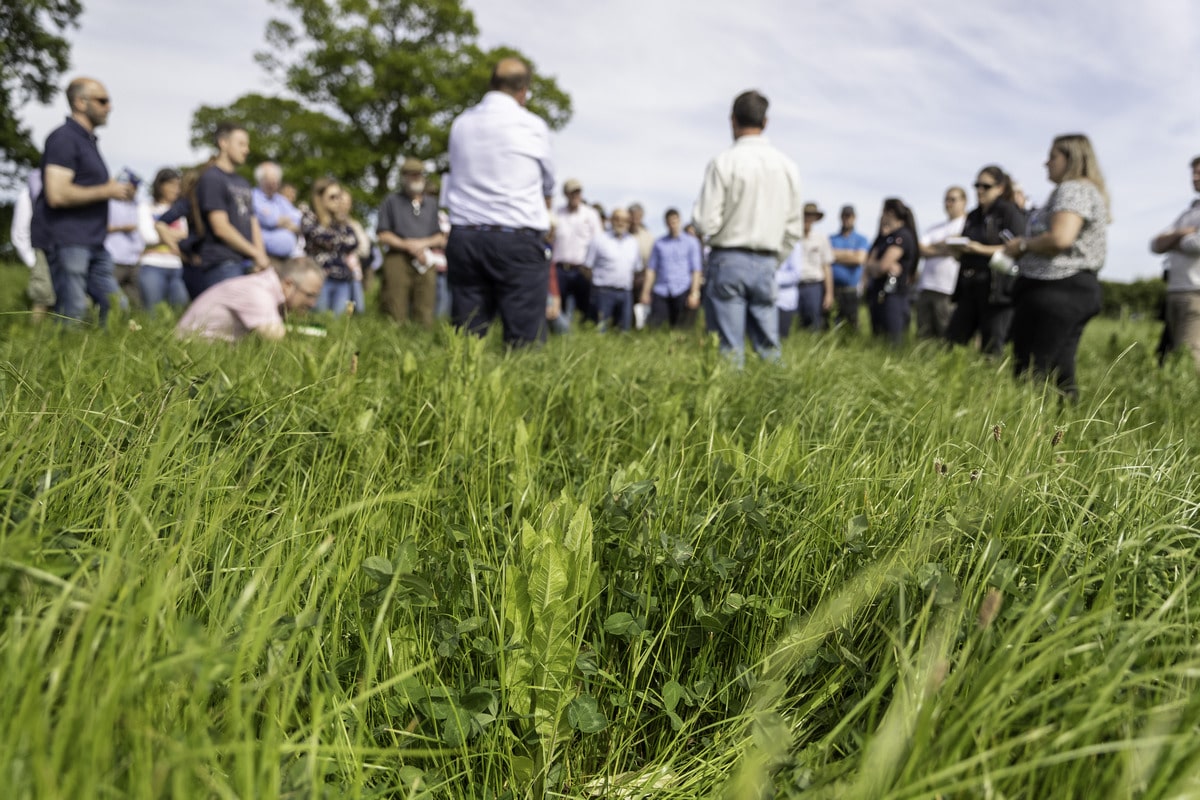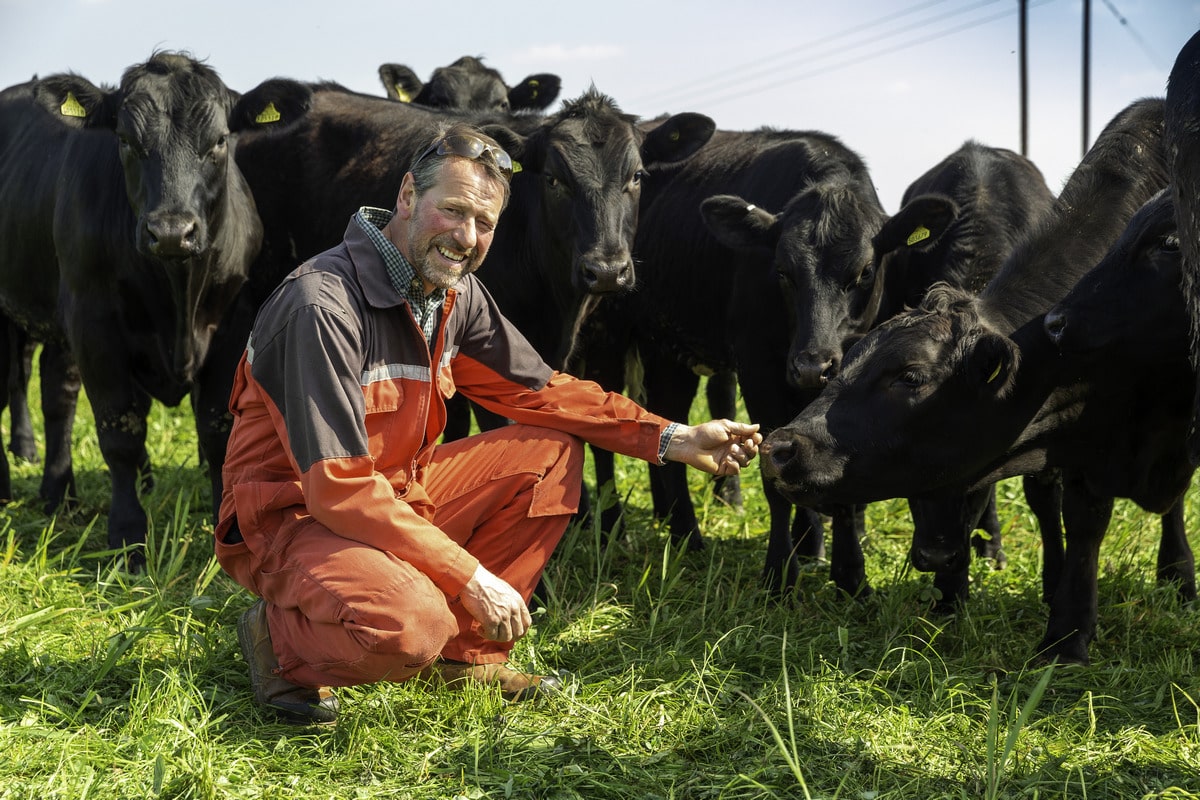Nature is a multi-species environment, so it’s logical to farm that way. This is according to farmer Julian Bowers, host of a Germinal on-farm event near Ellesmere in Shropshire, where the role of multi-species swards in sustainable farming systems was the focus.
Using multi-species in climate smart farming
Julian Bowers farms 220 acres with his brother Robert and first planted a multi-species ley in 2021, drilling 82 acres under a Countryside Stewardship Scheme (CSS).
At the same time, the brothers switched their intensive indoor Holstein dairy beef rearing system to a more extensive one, rearing Angus crosses.
“The goalposts in agriculture are changing,” said Germinal Agricultural Director Ben Wixey, welcoming visitors to last month’s event.
“Farmers are being asked to farm efficiently and profitably, with fewer inputs, less impact on the environment and within a changing climate.
“Germinal’s range of climate smart solutions have been bred to help farmers produce more sustainably and profitably.
“Years of top-level science is behind the development of these products, from our Aber High Sugar Grasses and clover varieties to the LandStrong multi-species range the Bowers have introduced here at Top House Farm.”
The right GS4-compliant multi-species mix for the farm
At the event in late May 2023, visitors had the chance to look at leys established in 2021, 2022 and earlier this spring, while discussing sward management and animal performance.

“Based on what we wanted to achieve, Germinal’s Helen Mathieu advised a bespoke, GS4-compliant mix because we have quite heavy soil.”
The recommended mixture comprises Aber High Sugar Grasses, four other grasses with plantain, chicory and red clover, among other herbs and legumes.
“I’ve always been interested in farming in a more sustainable way, spending less on inputs while producing a premium product,” said Julian.
“If you’ve been used to a monoculture sward, you have to change how you think. Enjoy the different parts of the diverse mix, knowing each adds something of value, be it high protein, high energy, nitrogen fixing or drought tolerance.
Spring establishment of multi-species swards
The establishment of multi-species swards was a hot topic of discussion on the day. Julian’s experience echoes that of Germinal Horizon’s extensive trial work on multi-species.
“You can’t beat spring establishment for multi-species if you want diversity there from the start,” says Julian.
“Herbs and legumes like a warm or warming soil rather than a shortening day to establish well. But there is no denying a spring sowing takes land out of production. You’ll lose the first and even second round of grazing sometimes, but we have found the benefits outweigh any drawbacks.”
The multi-species mixture was sown by minimum tillage and without applied fertiliser. No tractor has travelled on the land since sowing, apart from putting out some bales of GS4 silage in last year’s dry spell.
Economic and environmental gains
Julian explained how multi-species were working economically for the farm as well as environmentally.
During the very dry season of 2022, the cattle grazed on the multi-species swards had an average daily liveweight gain (LWG) of 0.8 kg. The combination of protein in the legumes, energy in the grasses and increased DM yield fed those gains.
“Establishment costs were about the same as for any new ley. Then between April and November last year, we grazed 95 head of cattle on the multi-species at a cost of about £7/head.
“We also made 30 acres of multi-species silage on the land, which fed cattle well over winter. And we haven’t needed to use any cattle wormers or fly treatment since we started using the multi-species.”
“By stripping out the cost of fertiliser, labour, diesel and other inputs, it’s a financially efficient production system for this farm.”

Constantly looking to improve
Julian admits he is learning all the time with multi-species. “We’re always learning things and we don’t always get it right.
“I’m not sure our grazing rotation is quite right as I think we might be able to use the crop better with shorter grazing periods.
“But as a way forward for the farm, as part of an arable and beef rotation, multi-species have proved a financial and environmental success.”
Ask an expert about sustainable farming systems this summer
For advice on multi-species swards and sustainable farming systems, submit the form and talk to our experts.
